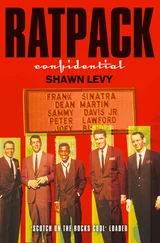• • •
Jason lands the first jump, crashes the second. It is afternoon when he arrives home, elbow bleeding and shoulder aching, to find Aunt Bonnie and Uncle Ben have arrived from Pocatello, with their six kids in the converted airport van. Jason parks the bike in the shed and pokes around in the dusty heat, avoiding going in. The gloomy swelter of the shed forces itself on him, sends stinging trickles of sweat into his scrapes and cuts.
He comes out as a rusty gold Nova tears into the drive. Uncle Roy. Here from Boise. A Jack Mormon, never married, suspected of illicit pleasures like coffee and beer. Jason’s favorite.
“Hey, kid,” Roy hollers, elbow out the window as the car engine rattles and ticks into silence. “Staying out of trouble?”
“Not really.”
“Cool, man.”
He clambers out, slams the door, puts his hands on his hips, and surveys the place. Soft body on a big frame. His belly strains against a thinning terry-cloth shirt and his fraying bell-bottom jeans nearly cover his feet. Face thick and happy, with curly sideburns and an unruly nest of hair and a grin that makes you feel he knows where all the good times are hidden.
He comes over, rubs a hand in Jason’s hair and hugs him hard, slaps his back, and holds him with one arm around the shoulder, tightly.
“Sucks about the old man,” Roy says.
“Really sucks,” Jason says.
“Just goddamn lousy,” Roy says. Jason’s eyes sting and tighten. Roy adds, “This next part’s gonna be worse yet. Watching all the boo-hoo.”
Roy pats his shoulder, releases him.
“Dean here?”
Dean. Uncle Dean. Supposedly, Jason met his uncle Dean once, when he was two or three, but all he knows is that Dean and his family live down in Arizona or Utah, with their million kids and strange ways. Old-school Mormons, fundamentalists. Just how old school he couldn’t have said, but Dean lives down where the polygamists live. One of the places. They’re up in British Columbia and down in Arizona and Mexico and even, a few of them, in Hagerman, just a few miles away in the Snake River Canyon. Little pockets of polygamists. They’re an embarrassment to good, normal Mormons, and Jason’s parents have made their own nervousness about Dean clear in their cautious avoidance of the subject. He is the signal omission from all their talk of family, family, family. The sacred family.
“I guess not,” Jason says.
“You’d know it if he was.”
“What? Why?”
Roy scrunches his features, as if he can’t quite calculate the answer. “He’ll be here soon enough. I don’t want to spoil the surprise.” He pats Jason aggressively on the shoulder. “Okay. Let’s go greet the fam damily.”
They go in. Hugs, kisses. Jason’s cousins are mostly younger. While they’re all saying shy hellos, Aunt Jenna and her five kids arrive in their station wagon from Salt Lake City. She has left her husband, Verl, behind. He’ll come up in time for the funeral tomorrow. The house is suddenly so full you can’t put a foot down. Cousins crowd into Jason’s room, toss down sleeping bags. Jason’s mother has put box fans in the windows, shoving waves of dank air, and laid out a buffet of cold cuts and salads on the kitchen counter, the start of the continuous meal that marks all family gatherings — the steady, informal eating, broken only by the moments of formalized eating. People stand around the counter, picking at the food, eating off trays, leaving the paper plates mostly untouched.
Suitcases and pillows pile up everywhere. Jason and his father set up cots in the living room and office. The day is blazing, near a hundred, and it’s not cooling as the bright evening approaches. Conversations streak into a blur.
“Robbie says you had to hold out that heifer again.”
“Is that sour cream in this?”
“I don’t believe those boys could make a tackle to save their life.”
“Yeah, she takes sick more than the rest.”
“Just a little plain yogurt.”
“Yep. Pinkeye.”
“So she takes off her clothes and runs into the ocean.”
“Glenns Ferry is gonna take ’em apart.”
“Mom! Mooooom!”
“And while she’s out there skinny-dipping, something starts to yank her under the water.”
“You got Pong?”
“Roy! What are you telling those kids?”
“Mom!”
“Pong and four other ones. I got it for Christmas.”
“It’s just a movie, Becky.”
“Sometimes one just is that way.”
“You see old Ford’s speech the other night?”
“Heavens. I wish we had someone better.”
“Better than awful?”
A knocking rattles the screen door. Someone yells, “Come in,” and an entire family clad in denim enters. Three boys in dark dungarees, light denim shirts, and suspenders. Four girls in prairie dresses of pale plain blue. Mother and father the same, like the largest in a set of nesting dolls. The chirping of grasshoppers is suddenly audible. The man holds his hat, squints into the room, as if he has just arrived from 1875 and is waiting for his eyes to adjust. His beard makes a neat berm along his jaw, and his bony Adam’s apple gives him the cast of an Ichabod or an Abe.
“I gather we missed the announcement,” he says to the room.
He has the unmistakable Harder lank and pall.
Dad reddens and comes to the door, says, “My word, Dean, how would we ever know how to reach you?”
It is past eight P.M. Through the screen door, behind the Ingalls Wilders, the sky darkens from pink to purple and orange. Dad and Dean stand at cross angles. Dad nods vacantly at nothing, and Dean’s family clusters as if for warmth. Dean’s wife looks cornered, as Mom blitzes in with the aunts.
“Heaven’s sake, you must all be starving,” she says. “Come get something to eat.”
Dean frowningly hugs his sisters and Jason’s mom, but his wife gives them grim smiles to convey that she will not be hugging anyone. Dean says, “Thank you, but I think we’ll just go over to the house and get settled.”
The house. Grandpa’s house. Dad stops nodding, and Mom starts, very slowly. From the far edge of the room, Roy calls, “Don’t go pocketing the silverware,” and Dad says, “Roy,” but Dean’s expression doesn’t change. He just says, as he herds his kids out, “Hullo, little brother.”
August 26, 1975 SHORT CREEK, ARIZONA
Loretta wakes into baffling stillness. Somewhere outside a car accelerates. Bird trill flutters through the window. Has she ever heard a bird before, inside this house? The family squelches all incoming signals, and now that the clamor has departed, the silence is delicate and pure and enormous. A dog barks, a hundred miles away.
She stays in bed, though the sun is up. No one knocks. No one calls her to breakfast or asks her to help with the children or points to a bucket with a floating sponge or kisses her on the top of the head or asks her to get more honey from the pantry. No one tugs at her skirt or tap-tap-taps her on the arm, as Ruth has ordered the children to do when they want a grown-up’s attention, and no one cries when they fall down after jumping off the shed roof or gets their pants caught on the barbed-wire fence or are told, sternly, that they cannot keep the stray cat they lured home only to have Ruth chase it away, whipping stones at it in short, expert strokes. It will not be her night tonight. She will not have to do that, though she ordinarily would, would prepare for it all day, reminding herself it’s just a gesture of the body. She will not have to hear Dean’s questions about whether she has noticed any queasiness in the mornings.
All of that doesn’t happen, and something else. She does not leave. She does not plan to leave. She could not dream of a better chance. She could not dream of a door more open. But she is not going, and she knows she is not going.
Читать дальше












